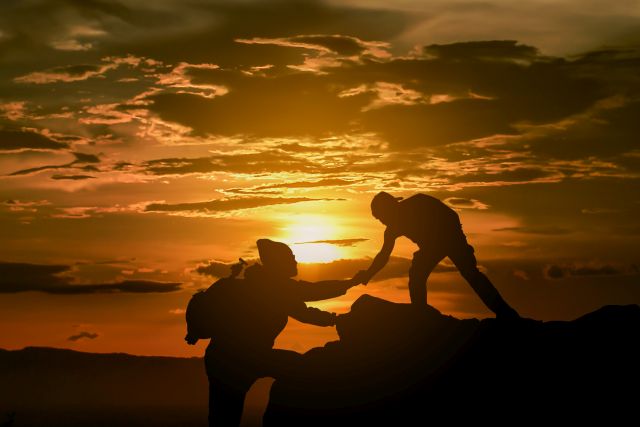When Getting Along Feels Impossible
Does any of this sound familiar?
You find yourself in a heated argument with a coworker over who left the office printer jammed—again—while everyone else looks on, uncomfortable.
You’re sitting in an auto shop, anxiety rising as you try to make sense of your mechanic’s explanation and wonder if you’re being overcharged.
You’re in the middle of another tense conversation with your ex about child support and visitation, both of you worried about what the kids are hearing—and feeling.
What’s striking is that, in every one of these situations, both sides are actually hoping for the same basic outcome. At work, you and your coworker both want a smooth, functional office and a little respect. At the repair shop, you and your mechanic both want the car fixed and a fair exchange. Even in the most emotional family disputes, both parents want what’s best for their children and some measure of security or understanding.
Yet, despite these shared goals, conflicts still flare up—often over misunderstandings, stress, or habits we’ve picked up along the way. So much of the time, the struggle isn’t about truly opposing needs, but about missing each other’s intentions or getting stuck in patterns that serve no one.
Naming the Common Objection
If you’ve ever found yourself in an argument that seemed to come out of nowhere—maybe with a coworker, a friend, or even a stranger online—or felt that sinking frustration after another day of misunderstandings, wondering why getting along with people feels harder than it should, you’re not alone. In today’s world, it can seem like conflict and frustration are just part of the deal, something we’re supposed to accept. But what if they aren’t? What if things could actually get a little bit better—starting right now, right where you are?
And maybe, as you read this, you’re thinking, “I get along just fine—it’s everyone else who needs this book.” Or you worry that even if you try, the people around you won’t change. That’s a perfectly reasonable reaction. Most of us feel that way at some point, and the truth is, you’re probably right: the people you struggle with most likely won’t be reading this book, or any book like it. But that doesn’t mean your efforts can’t make a difference.
Reality-Based Optimism: What This Book Is (and Isn’t)
I’m not here to tell you that you’re broken, or that you need to overhaul your entire life. In fact, I believe the opposite: most of us are doing the best we can in a society that hasn’t made it easy to get along. This book isn’t about wishful thinking or pretending that everyone will suddenly become easy to deal with. It’s about reality-based optimism—the belief that things can get better, not through denial or naïveté, but by focusing on what you can control and making small, meaningful changes, even in imperfect circumstances.
I’m the Freedom Preacher, and my goal is simple—to help us rebuild the habit of getting along with each other. That’s it. No lectures, no guilt trips, no complicated theories. Just practical ideas and real stories that can help you make things a little better, one step at a time.
The Surprising Truth: We All Know the Basics
Here’s the thing: getting along isn’t some mysterious art. As children, we learn simple rules—don’t hit people, don’t take their stuff, say “please” and “thank you.” Most of us know these basics by heart. The challenge isn’t knowing what to do; it’s remembering to do it, especially when life gets complicated or stressful.
Why Getting Along Feels Harder Than It Should
So why does it feel so hard? Part of the answer lies in the world around us. We live in a time of rising tension, polarization, and loneliness. Societal habits, cultural messages, and even our own past experiences can make it difficult to maintain the habit of cooperation. Sometimes, the people we encounter really are difficult. Sometimes, we’re the ones having a rough day. Often, it’s a little of both.
What to Expect from This Book
If you’re reading this, there’s a good chance you’re frustrated with some part of your life. Maybe you’re tired of feeling misunderstood, or you wish your relationships—at work, at home, or online—were just a bit smoother. Maybe you’re skeptical about self-help books or support groups, and you’re not sure anything can really change. That’s okay. In fact, that’s exactly who this book is for: people who want things to improve, even if just a little, but aren’t interested in quick fixes or empty promises.
Here’s what you’ll find in these pages: an honest look at why getting along has become so difficult, practical tools you can use right away, and real-life stories from people who’ve made small but meaningful changes. You’ll also find ways to connect with others who are on the same journey—because sometimes, just knowing you’re not alone makes all the difference.
Invitation and Encouragement
If you’re willing to believe that things can get a little better, you’re already halfway there. Change doesn’t have to be dramatic or overwhelming. Sometimes, it starts with a single conversation, a new habit, or just a shift in perspective. My hope is that this book will help you take that first step—and maybe, together, we can make getting along a little easier for everyone.
Let me know if you’d like to further expand, condense, or adjust any section—or if you’d like this formatted in Markdown for direct import into Scrivener!


